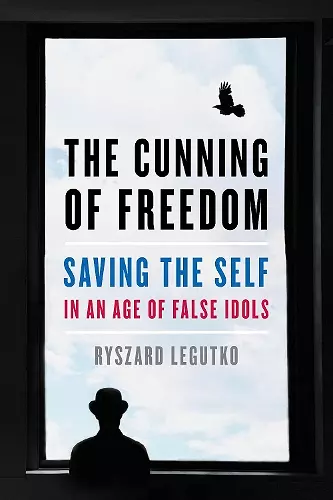The Cunning of Freedom
Saving the Self in an Age of False Idols
Format:Hardback
Publisher:Encounter Books,USA
Published:25th Feb '21
Currently unavailable, our supplier has not provided us a restock date

This book has two currents. The first is an analysis of the three concepts of freedom that are called, respectively, negative, positive, and inner. Negative freedom is defined as an absence of coercion, positive freedom as an ability to rule oneself and others, inner freedom as being oneself; that is, being the author of one’s decisions. Each concept is analyzed both in terms of its development in the history of ideas and in terms of its internal logic. The major problem of negative freedom is to find widely accepted rules according to which this freedom can be distributed. Positive freedom’s major difficulty is to define what constitutes a free person. The greatest dilemma with inner freedom is how to correlate it with the proper interpretation of the human self. The book advances the thesis, and this constitutes the other current of its narrative—that we have been witnessing the advent of a new form of despotism, much of it being the effect of liberalism’s dominant position. Precisely because it took a reductionist position, liberalism has impoverished our view of freedom and, consequently, our notion of human nature with its political, moral, and metaphysical dimensions.
“Forget Rawls, Nozick, and Dworkin. You have to read Legutko. His new book, The Cunning of Freedom, demolishes social-contract theory and shows why universal rights haven’t made us free or happy—and never will. Legutko’s penetrating vision of positive human freedom puts him at the very forefront of political philosophy in our time.”
—Yoram Hazony, author of The Virtue of Nationalism (Basic Books, 2018)
—R. R. Reno, editor of First Things “The enticing word ‘liberalism’ with its ‘rights’ is now a bait leading to the slavery of conformism. Freedom itself has to be freed from its own perversions. Ryszard Legutko aptly scrutinizes several models of the free man, alleged or real: philosopher, entrepreneur, artist, aristocrat. Beyond Hume's and Nietzsche's nihilism, he retrieves a strong concept of the self, grounded on the Greek ideal of the ‘large soul,’ mindful of its roots, conscious of its dignity and of the duties it involves, fighting for the virtues, and finding peace in contemplation.”
—Rémi Brague, professor emeritus, Sorbonne and University of Munich, and author of Curing Mad Truths (University of Notre Dame Press, 2019) “Of all the many books on freedom I have read, this new book by Ryszard Legutko is by far the best. What he says is in essence what Burke also said, and what most—particularly American—conservatives today have all but forgotten: that freedom without wisdom and virtue is folly, vice and madness, without restraint. In Burke this is just a brilliant aphorism. Legutko’s book gives us much more: it is a profound, philosophical description and explanation of the many shapes this mad and vicious freedom has taken in the modern world. A hard, but necessary pill to swallow for everyone who thinks that freedom is all it takes. A truly Socratic elenchos on an intellectual level that is very rare in today’s academic world.”
—Andreas Kinneging, professor of legal philosophy, University of Le
ISBN: 9781641771375
Dimensions: unknown
Weight: unknown
200 pages